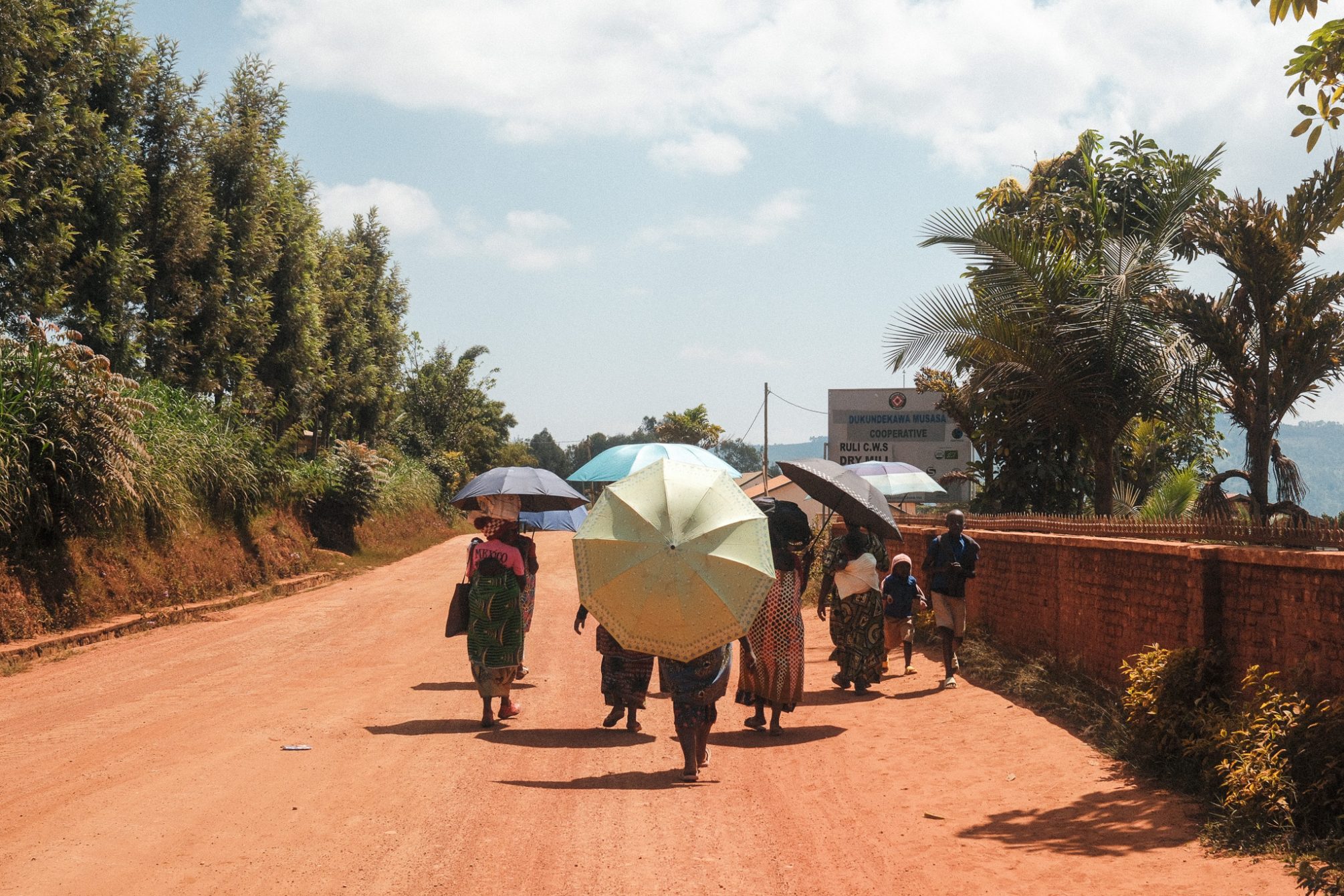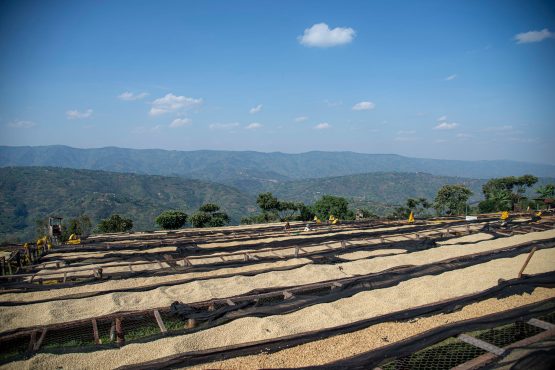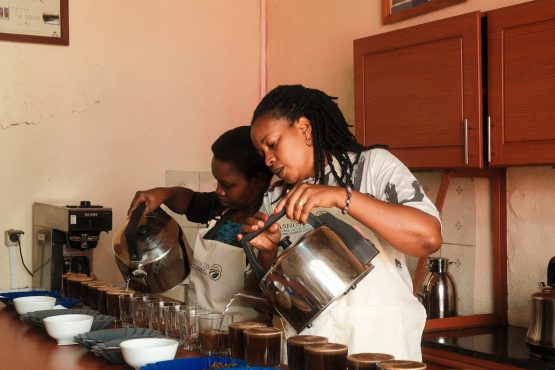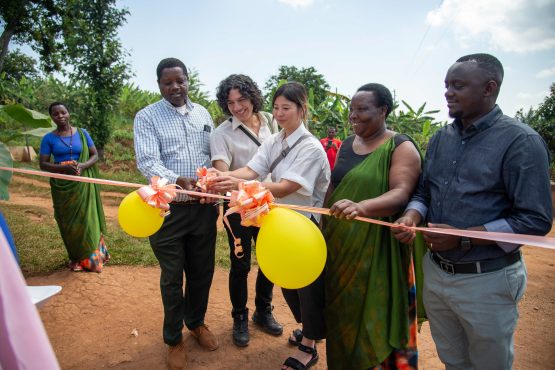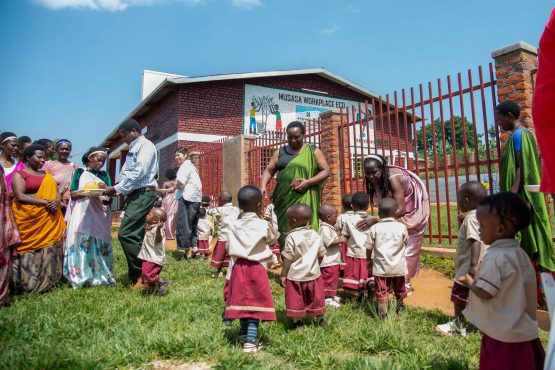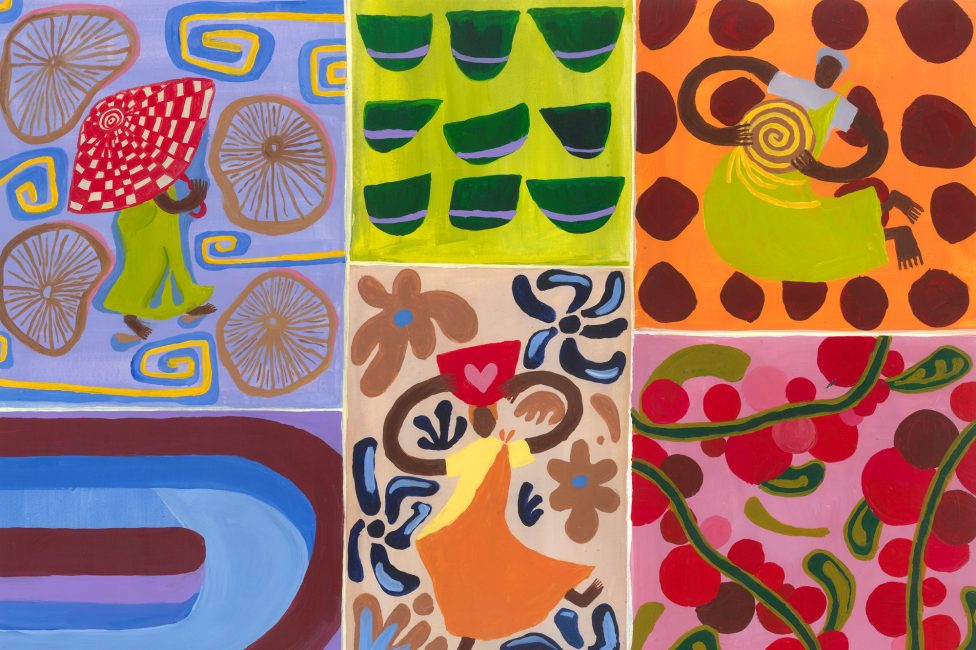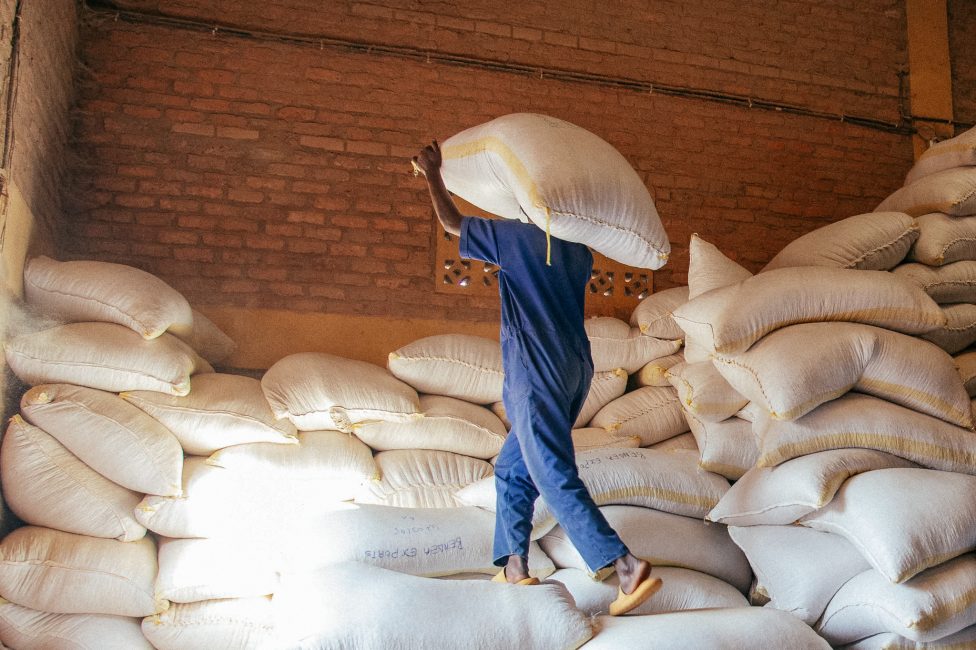Harvest Update: Rwanda
Our most recent visit to Rwanda was truly memorable — there was a palpable excitement in the air as the coffee harvest came to an end, and we were thrilled to be on the ground to experience it!
Published 18 Nov 2025
While travelling through towns and washing stations on our most recent visit to Rwanda, there was a palpable excitement in the air as the coffee harvest came to an end. Because we’ve built such deep and longstanding relationships here, we are always welcomed with incredible warmth, smiles and hugs, yet there was something different about this year. Our producing partners were buzzing amidst a heightened sense of joy and anticipation. After spending time with them, it didn’t take long to learn why — this year’s harvest was one of the country’s most high-yielding and bountiful, and the national government had set the base price being paid for coffee cherry at an all-time high. Some 24 years since Rwanda’s first cooperative-owned washing station was built, growers were experiencing one of their most prosperous seasons yet.
During our visit to Rwanda we were received by exporters RWAHOSCCO in the capital Kigali, Maraba Cooperative in the Southern Province, and Dukunde Kawa Cooperative in the North. Across the board, everyone we spoke to agreed: the 2025 harvest felt like a significant inflection point; if sustained, it had the potential to revitalise the local industry. Our hosts also recognised that this year’s abundant crop had not been without its challenges. The high volumes experienced at washing stations across the country pushed co-ops to their limits — financially and operationally. However, all site managers we visited explained that most Rwandan washing stations had been built to handle even larger volumes of cherry; should these yields become the norm rather than the exception, our producing partners were confident they could adapt and scale up.
This positive and entrepreneurial attitude is part of what makes our visits to Rwanda so invigorating; challenges aren’t seen as mere problems to be solved, they’re opportunities for communities to come together for the benefit of the whole. This enterprising spirit is also what is pushing cooperatives like Dukunde Kawa and Maraba to purchase communal plots for women and youth members to tend to, harvest, and share earnings from. Both co-ops also invest in projects like the production of dairy, weaving of handicrafts and making of soaps, as these opportunities can generate steady revenue after coffee activities have wrapped up.
As Ernest Nshimyimana, Dukunde Kawa’s Managing Director explained, “We’re targeting farmers’ prosperity, because a single yearly payment cannot offer that. Farmers need training, they need support, along with added initiatives that generate extra income.” The results of these efforts are visible and tangible when visiting Rwanda. Talking to farmers on our most recent trip, most were excited to tell us about the home renovations this year’s earnings allowed them to afford, from the installation of plumbed toilets and taps to the purchase of gas or electric stoves, and even the establishing of new coffee plots.
Tasting coffee in Rwanda is always a delight due the distinct flavour profiles produced here — and the latest crop is an absolute ripper. With farmers who were affected by devastating hailstorms in 2023 fully recovered, and zoning laws that limited which coffee cherries cooperatives and private companies could source now repealed, washing stations competed fiercely for the very best quality fruit available. This didn’t just contribute to the increased prices farmers received, it also ensured coffee was processed meticulously and with great care, resulting in stellar quality across the board. While cupping in Kigali, we were thrilled with the range of coffees on the table, with Northern Province lots presenting complex florals and refined acidity, while those from the South showcased their classic juicy, rich sweetness.
Beyond the exceptional coffees we tasted, our visit to Rwanda also included a very special milestone: the official inauguration of the Musasa Early Childhood Development Centre, the culmination of the successful Supporting Strong Women campaign. The centre opened its doors in January and operated throughout the entire harvest; however, whilst we were in town, our Dukunde Kawa friends were keen to celebrate its opening with an official ribbon cutting ceremony.
The women of the Rambagirakawa alliance welcomed us with singing and dancing, and kept us chatting well into the night, showing us photos of their children, recounting stories from the centre’s early days, and sharing their hopes for the future of their town now that an early education centre had been established. To everyone’s applause and cheers, farmer Laurence Mukakabera even voiced her conviction that one of the children being cared for could grow up to become a government official that could guarantee fair and profitable prices for the country’s future coffee growers. It was wonderful to see the facilities in operation, one of Rambagirakawa’s long-held dreams finally brought to life thanks to the generosity and commitment of all who contributed to the campaign.
With such an energising trip behind us, the arrival of our fresh crop Rwandan offerings is the next chapter in an overwhelmingly jubilant harvest, and certainly not its last. We firmly believe that traveling to origin isn’t the only way to experience and celebrate a season as eventful as this one; enjoying the coffees, sharing them with your customers and telling the stories of the people behind them are just as effective at accomplishing this. Coffees will be ready for dispatch by the end of the week; we can’t wait to see these on your shelves!
